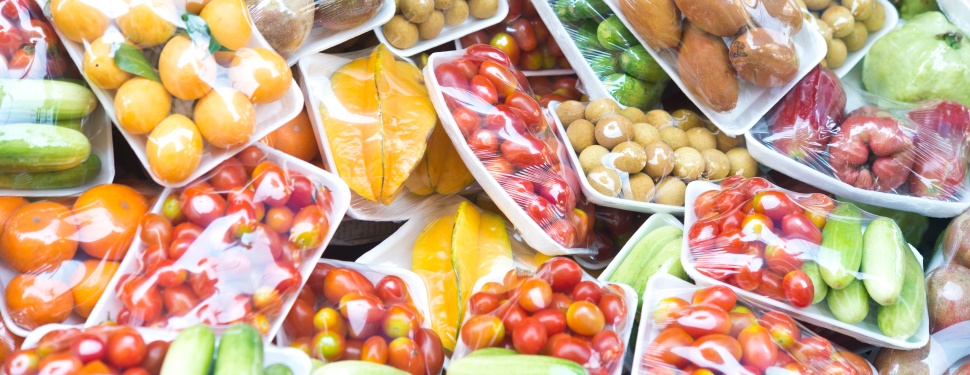France installs new ruling on fruit and vegetable plastic packaging
The government in France has installed a new ruling which establishes which fruits and vegetables are allowed to continue to be sold in a plastic packaging.
Diana Butron

The ruling entered in to force the last 1st of July 2023 however a transitional period runs up to the 31st of December of this year.
This law now prohibits the sale of fresh, unprocessed fruits and vegetables with a packaging made entirely or partially of plastic except for items larger than 1.5 kg and varieties with a high risk of spoilage. The objective of the Decree No. 2023-478 was to designate which varieties lied under these criteria. The exceptions to the ruling are chicory, asparagus, broccoli, mushrooms, early potatoes, early carrots, baby carrots, lettuce, lamb's lettuce, young shoots, herbs, spinach, sorrel, edible flowers, mung bean sprouts and sprouted seeds. Also excluded are some fruits and berries, namely cherries, cranberries, cranberries, physalis, raspberries, strawberries, blueberries, blackberries, currants, elderberries, gooseberries, and kiwis. In addition, fruits fully ripe are also an exception to the ruling and may be offered in a packaging which displays such notice. Rubber bands to hold items together are also an exception.
This ruling is not the first attempt for a similar law by the French government. A rejected attempt took place in 2022. Another attempt also placed in December 2022 was given a blocking period by the EU Commission until December 15, 2023. This decree included less exceptions than the decree now adopted.
Plastalliance, the French plastics and composites industry association says it is "dismayed" by the new legislation. The association has instructed its legal advisors to request before the French Council of State (Conseil d'Etat) that the new decree be initially suspended and later repealed. The Conseil d'Etat acts, among other things, as the highest administrative court in France.
1) The government published the decree knowing that a similar draft was presented and clocked by the EU Commission, and the content of the decree is covered by the Packaging and Packaging Waste Regulation (PPWR) proposal.
2) In the case of the Decree overturned in December 2022 the measure was not sufficiently justified and the decree was adopted without prior impact assessment.
3) The first decree did not examine the extent to which it would restrict the free movement of goods in the EU.
"No batteries in the garbage can!"
Burning plastic for cooking and heating an emerging crisis, study finds
GRS Launches Pilot Project for the Return of Small and Micro Electrical Appliances Containing Lithium Batteries - The LiLA Collection System!
BATTPRO – Battery Takeback Professionalization to Support Environmental Protection in Cambodia and Thailand
Abstracts From the BKAWE'25
Cologne Plans to Introduce a Packaging Tax
Lexxion Is Celebrating 25 Years
South Africa Improves E-Waste Management With Support From Empa
Designing More Sustainable Products: 18 Categories With High Potential